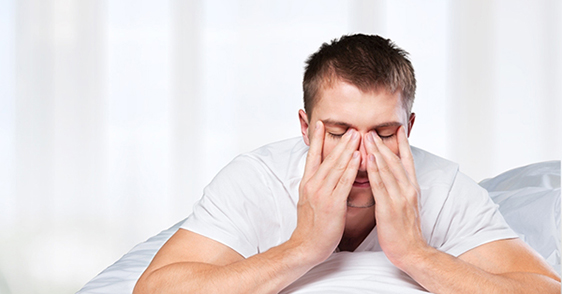
Sleep disorders have been increasingly highlighted as doctors and researchers stress the importance of getting a good night sleep. One sign of a sleep disorder may be grinding your teeth while you slumber, which can result in a variety of difficulties and signal the existence of a sleep disorder such as sleep apnea. Neither condition is pleasant to deal with, although those who have untreated, chronic sleep apnea are at a greater risk of serious cardiovascular problems.
Neither condition is pleasant to deal with, although those who have untreated, chronic sleep apnea are at a greater risk of serious cardiovascular problems.
Grinding Teeth While Asleep
Studies suggest that around eight percent of adults grind their teeth in their sleep, which is referred to by medical professionals as sleep bruxism or nocturnal teeth grinding. The causes that lead to people grinding their teeth on a regular basis during sleep have yet to be pinpointed. Bruxism has been linked to a variety of factors, include anxiety, alcohol and amphetamine consumption, cigarette smoking, fatigue, caffeine and even snoring. Studies show that some medications also increase the occurrence of bruxism, while certain sleep disorders are also linked to grinding teeth.
The symptoms of bruxism depend on the person dealing with the condition. Some experience no impairment whatsoever while others feel a little more tired than usual. Some people who deal with grinding their teeth end up with dental and jaw injuries, as well as impairment of daily functioning.
For those who deal with bruxism that’s frequent and severe enough to damage health, a custom mouth guard may be fashioned to prevent the upper and lower set of teeth from impacting each other.
What Is Sleep Apnea?
Sleep apnea is a medical condition in which the airways in the throat become severely constricted while asleep, leading to a variety of health complications. One of the biggest signs of sleep apnea is it’s loud enough to even wake the person who’s making the noise in their sleep. Perhaps the most frightening symptom of sleep apnea is that it can cause people to stop breathing entirely while asleep.
Some people suffer from sleep apnea because of genetic tendencies that result in a narrower throat, or unusually thick tissue in the airways. However, many people deal with sleep apnea due to an unhealthy lifestyle that involves obesity, alcohol consumption, cigarette smoking and excessive fatigue that causes throat muscles to loosen.
When left alone, sleep apnea increases the risk of heart failure, stroke, diabetes, hypertension, myocardial infarction and arrhythmia. Typically those who suffer through severe sleep apnea have to alter their lifestyle, undergo surgery or make use of medical devices that help to keep breathing passages open while asleep.
Comparing Bruxism and Sleep Apnea
While sleep apnea is clearly a greater health risk, if you deal with bruxism, you shouldn’t pass off the symptom as nothing to worry about. In addition to being listed as a predictor of sleep apnea, teeth grinding points to a wide range of more serious issues.
Seek A Specialist To Combat Sleep Disorders
Medical conditions such as sleep apnea and bruxism are linked to some of the most serious sleeping disorders and medical health problems. Grinding your teeth and snoring may not seem like a big deal, but in the long run they can lead to a loss in the quality of your life at a minimum. At worst, these issues can lead to a spike in stroke and heart attack risk.
Houston Sinus & Allergy specializes in treating nasal and sinus conditions and providing allergy care. Our practice is committed to helping you find long term relief from your symptoms. Dr. Nguyen is a Board Certified ENT – Head and Neck Surgeon with extensive training & experience in diseases of the ears, nose & throat.
Click here to book an assessment, or call us at the number posted at the top of the page.

